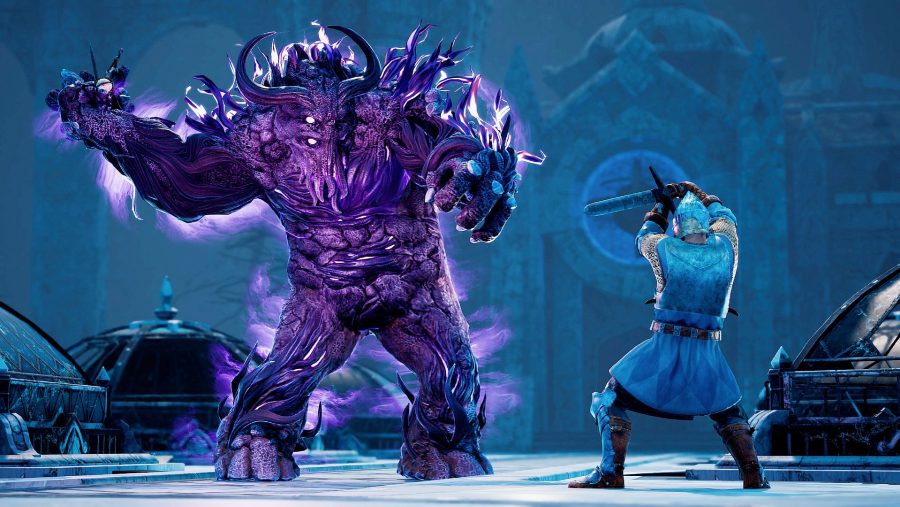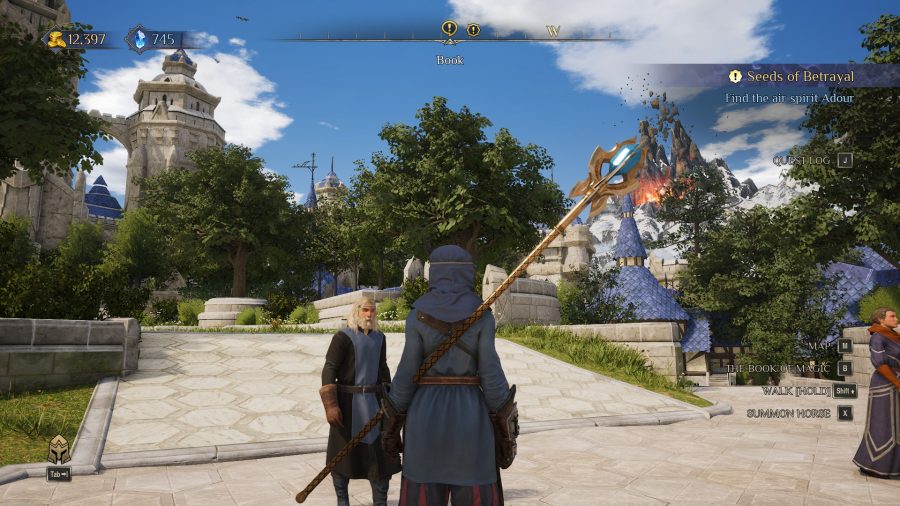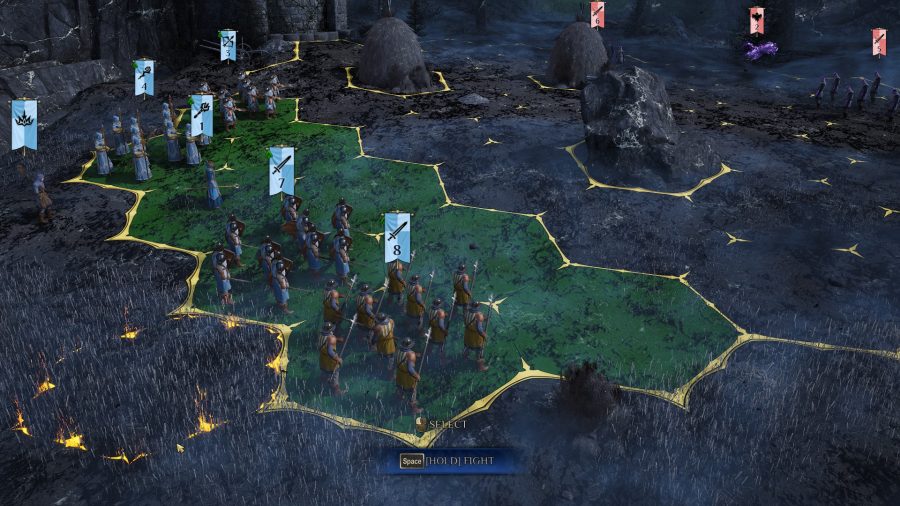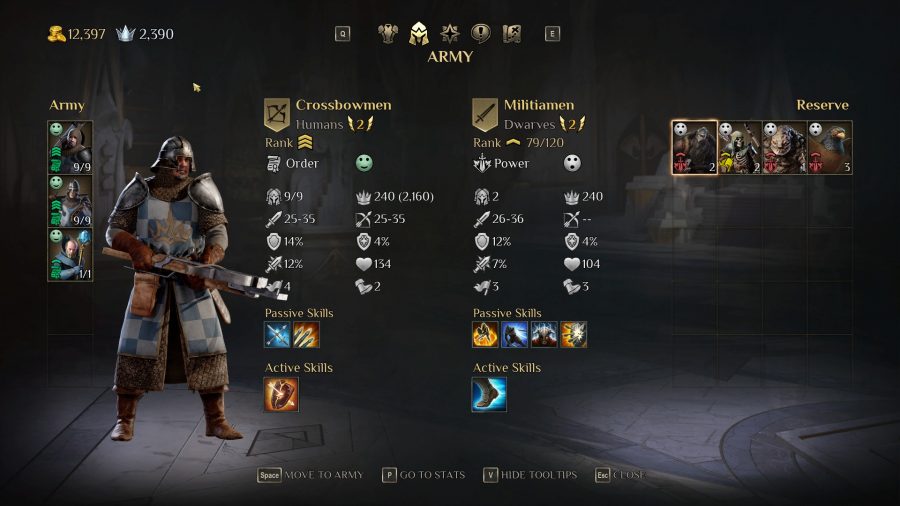Game "journalists" have a tendency to be overly critical of games not made by certain publishers (those who don't pay for reviews) to balance their salivating over AAA games, that way they hope to give impression of objectivity.
-
Welcome to rpgcodex.net, a site dedicated to discussing computer based role-playing games in a free and open fashion. We're less strict than other forums, but please refer to the rules.
"This message is awaiting moderator approval": All new users must pass through our moderation queue before they will be able to post normally. Until your account has "passed" your posts will only be visible to yourself (and moderators) until they are approved. Give us a week to get around to approving / deleting / ignoring your mundane opinion on crap before hassling us about it. Once you have passed the moderation period (think of it as a test), you will be able to post normally, just like all the other retards.
You are using an out of date browser. It may not display this or other websites correctly.
You should upgrade or use an alternative browser.
You should upgrade or use an alternative browser.
King's Bounty II
- Thread starter Wunderbar
- Start date
Game "journalists" have a tendency to be overly critical of games not made by certain publishers (those who don't pay for reviews) to balance their salivating over AAA games, that way they hope to give impression of objectivity.
Yeah, it's often the difference between:
- "frequent bugs and glitches but the underlying game is great, 9/10"
and:
- "the underlying game is great but it's rife with bugs and glitches, 6/10"
Whisper
Arcane

- Joined
- Feb 29, 2012
- Messages
- 4,357
Game "journalists" have a tendency to be overly critical of games not made by certain publishers (those who don't pay for reviews) to balance their salivating over AAA games, that way they hope to give impression of objectivity.
Short and true.
They make living by taking money from companies whose game they "review".
Taking money in different forms, like advertising. Or just direct bribes.
Mark Richard
Arcane
- Joined
- Mar 14, 2016
- Messages
- 1,213
That's the western games press for you. The only titles that seem to get positive attention are the Triple A blockbusters or some weird indi dating sim made by the reviewer's best friend. All of my favourites from Eastern Europe have been panned or ignored – This is the Police 2, ATOM, Pathologic 2, and Pathfinder: Kingmaker. Will have to wait for the user reviews to see if this one's any good.
DA2 was ten years ago. Better to judge PC Gamer on their recent work, which is full of disinterested freelancers pumping out 800 word articles that fail to articulate their position beyond unhelpful descriptors like 'boring'. They sound like their mother shook them awake half an hour ago and told them they have to do some work today. The reviewer for This is the Police 2 even admits to finding the game too hard to finish and not playing the first game.When i start to forget that paid reviews suck (most of them are on payroll of big game devlopers), i remember how PC Gamer gave Dragon age 2 a 96 score.
Last edited:
samoilaaa
Educated
- Joined
- Nov 24, 2020
- Messages
- 83
and AC valhalla 92The reviewer for my site seems to like it.
https://ragequit.gr/en/reviews/item/kings-bounty-ii-pc-review/
PC Gamer, on the other hand, not so much.
https://www.pcgamer.com/kings-bounty-2-review/
Ah yeah, PC Gamer who gave Dragon Age 2 a 96.
- Joined
- Jan 28, 2011
- Messages
- 99,671















King’s Bounty II is now available on PlayStation 4, Xbox One, Nintendo Switch and PC. Prepare for the fights ahead with today’s Launch Trailer featuring a theme song «Reborn», written by: award-winning music composer & producer Raney Shockne and David Cordeiro (featuring Vanessa Bryan).
Darkness descends over the world of Nostria. Conspiracies, sabotage, and necromancy are overshadowing the country. Counties are demanding independence, bandits prowl the roads, and rumors about the overwhelming power of Blight emerge from a whisper in the dark. The old King Claudius was poisoned and cannot lead the kingdom, and so his son, Prince Adrian, must now unite the struggling lands while his power and faith fall under attack. But maybe a saviour – the kingdom's last hope – is already here, to fight back and finally restore peace and order in Nostria?
(not actually out yet)
Geman magazine Gamestar seems rather fond of it (behind paywall and of course in glorious Germano Lango):
Präsentation

Pro

Pro

Pro

Pro

Pro

Pro
- hübsche, einladende High-Fantasy-Welt
- vielfältiges Charakter- und Einheiten-Design
- Rundenkämpfe finden direkt in der Spielwelt statt
- stimmungsvolle Soundkulisse
- teils steife Animationen

Pro
- abwechslungsreiche Haupt- und Nebenaufgaben
- flotte Schlachten mit vielen taktischen Optionen
- mit Taten verknüpftes Skill-System
- motivierender Mix aus Erkunden, Kämpfen und Upgrades
- wenig intuitive Menüsteuerung

Pro
- übersichtliches Schlachtgeschehen
- strategisches Geschick kann Übermacht ausgleichen
- nur ein Schwierigkeitsgrad
- Man kann sich leicht in eine Sackgasse spielen.
- Nebenaufgaben praktisch Pflicht, um mit Gegnern mitzuhalten

Pro
- klasse inszenierte Handlung
- gut geschriebene Nebenaufgaben
- Entscheidungen haben Einfluss auf die Spielwelt
- atmosphärische englische Vertonung
- Welt abseits von Quests wenig lebendig

Pro
- 40- bis 50-stündige Kampagne
- Quests und Schätze an jeder Ecke
- große, teil-offene Spielwelt
- viele Einheitentypen, aufgeteilt auf vier Ideale
- ordentlicher Wiederspielwert durch drei Helden
Whisper
Arcane

- Joined
- Feb 29, 2012
- Messages
- 4,357
This review killed the game for me:
Spend like 5 min of watching (he speaks very slowly, increase speed).
Most of his concerns are trash. Like he has to open another menu to see stats and that you can lose units if all creatures in stack fall.
Or that if you follow one path, you are in future locked from other choices.
This is called C&C. Bads hate it, they want to see "full content" and whine about "gating". Same old story as with Age of Decadence.
Renevent
Cipher
- Joined
- Feb 22, 2013
- Messages
- 925
This review killed the game for me:
Spend like 5 min of watching (he speaks very slowly, increase speed).
Most of his concerns are trash. Like he has to open another menu to see stats and that you can lose units if all creatures in stack fall.
Or that if you follow one path, you are in future locked from other choices.
This is called C&C. Bads hate it, they want to see "full content" and whine about "gating". Same old story as with Age of Decadence.
Oh well good then, hopefully it's just a case of being a moronic reviewer :D
Whisper
Arcane

- Joined
- Feb 29, 2012
- Messages
- 4,357
Oh well good then, hopefully it's just a case of being a moronic reviewer :D
'Why when i use brute force in every quest and kill anyone i see - people are not nice to me later and i cant choose options with diplomacy?"
This limits my freedom!
Lyre Mors
Arcane
- Joined
- Nov 8, 2007
- Messages
- 5,437
Can't watch it yet, but what's the general complaints?
Majority of the video is essentially complaining that the game plays like a King's Bounty game. I guess watch it later and decide for yourself, but anyone actually familiar with the genre would find many of these gripes to be non-issues or expected, ie - 3-4 minutes on the fact you don't actually use your hero in battle and that their equipment is only used to increase your units abilities, how movement is at a constant and slower pace with no jumping (a clear transposition of the feel of overhead movement in these games to simply a more "immersive" perspective), etc.
Renevent
Cipher
- Joined
- Feb 22, 2013
- Messages
- 925
Oh well good then, hopefully it's just a case of being a moronic reviewer :D
'Why when i use brute force in every quest and kill anyone i see - people are not nice to me later and i cant choose options with diplomacy?"
This limits my freedom!
LOL okay he's an idiot. Shame on whoever posted this review in the first place/
This review killed the game for me:
Well, his biggest complaint is the control of the horse and walk speed. The rest sounds like criticism that are actually not really negatives by themselves. For example, he didn't like that his hero does not participate in the fights and is only a commander (which for me is not a problem), or that you cannot avoid the fights in the game (which also isn't a bad thing per se). He complains about the voice acting, and this can indeed be bad, and also speaks that there are few decisions to be made in dialogs, which if true also sucks. But by no means do they sound like terrible points. I need more information to form an opinion.
Lyre Mors
Arcane
- Joined
- Nov 8, 2007
- Messages
- 5,437
and also speaks that there are few decisions to be made in dialogs
To my understanding there aren't any dialogue options per se, but rather different approaches to quests are presented on the map according to the way you've decided to build your character. For this type of game, it sounds like not only an appropriate design choice, but a rather fun one at that. If I understand it correctly, your actions, where you decide to go and what you decide to do serve as stand-ins for dialogue-based options.
This looks like trash and big departure from the charm of KB games. If you were playing KB and thinking to yourselves, "this game needs skyrim dialog, slower paced world map and battles, or.. or.. or. oh boy more cinematic experience" you should spend 50 euro to infect your pc with denuvo trash on top.
Arthandas
Prophet
- Joined
- Apr 21, 2015
- Messages
- 1,553
Most of his complaints are very valid. There are no dialog options (lol) and your character can be equipped with various weapons and armors like in any other tpp action game buuuuuuut he/she never actually fights so it's just fake. It worked in previous games because you didn't directly control your character in tpp. There are also other problems like low res textures, janky controls or atrocious interface where you have to open separate windows just to see some basic info.Most of his concerns are trash.
vazha
Arcane
- Joined
- Aug 24, 2013
- Messages
- 2,069
This review killed the game for me:
Didn't see / hear anything too alarming, tbh. Janky? Bitch please, I was molded by Slavic RPG jankiness. MC not participating in battles? No problem, never bothered me. Bad voiceacting? dude did find solution in the very video already.
Going to give this a try, will share impreshuns later
- Joined
- Jan 28, 2011
- Messages
- 99,671















https://www.pcgamesn.com/kings-bounty-2/review-pc
King’s Bounty 2 Review – blue blood
Lordly combat in a pauper's open world

If you’re already a fan of King’s Bounty then this long-awaited sequel isn’t likely to disappoint. At its core you’ll find the same satisfying turn-based tactical combat that inspired the Heroes of Might and Magic Series, but it’s trussed up in a clunky open world and marred by some lacklustre storytelling. It’s a much trickier pitch for newcomers.
Outside of combat, every trick it plays to try to modernise itself has been done before, and better, over the past 12 years, and the frustrating grind may prove too much for more modern tastes.
The largest and most obvious glow up from the previous entry in this series, 2008’s King’s Bounty: The Legend, is the move to a big 3D open world. The Kingdom of Nostria looks great, with a smattering of different environments to explore that make the most out of an imaginative and vibrant colour palette. The countryside is replete with rolling hills and sleepy dirt roads, and golden patches of wheat break up the otherwise emerald vista. It would be straight out of a medieval painting if not for the towering, Tolkien-inspired architecture looming over it all.
Though the presentation apes the grounded fantasy of series like The Witcher, the world itself doesn’t feel very alive or self-reliant. NPCs stand idly, spouting repetitive voice lines at each other. It never feels like they’re doing anything but waiting for you to come talk to them. The villagers and townsfolk you meet aren’t shy about asking you to take care of their problems, but it’s rare that these sidequests resolve in a way that truly twists expectations. It doesn’t help that there are no dialogue options or any way to have agency over how each encounter goes. Out in the wild you’d be hard pressed to find any life that doesn’t want to devour you, and the lack of a day/night cycle makes Nostria seem like it’s frozen in time.
Exploration is very limited too, and for the most part you’re restricted to clearly designated paths and clearings. Jumping up or down ledges is a no-no, and this can make getting to particular points of interest a real chore, especially when they’re just out of reach. ‘Points of interest’ may be a tad strong for what you’ll encounter in most of King’s Bounty II’s nooks and crannies – you’ll find no shortage of containers to search for random items or gold, but I can’t recall many standout areas.
You choose from one of three starting characters: a gruff and grumpy mercenary; a mage who’s basically a witty jerk; and an earnest, naive paladin. Their differing personalities are capably reflected in what they say to others, but regardless of whether you’re playing as the kinder paladin or the blockheaded mage, everyone else treats you the exact same way.
Outside of combat, the only real difference between these characters is how they solve problems in the world. Aivar the mercenary is unable to get past anything that requires a basic understanding of magic, like a barrier erected by another mage, but the other two can handle it just fine. This feels like an unfairly limiting factor for one of the three characters, and it’s pretty inconsistent as there are plenty of side quests and puzzles that require a magical touch, which Aivar can apparently just grumble his way through instead.
The main story is standard fantasy fare. Before you take control of them, your main character spent several months in jail for being an unwitting accomplice to an attempt on the King’s life. After being freed under mysterious circumstances, you embark on a tale full of prophecy and politics against the backdrop of an impending apocalypse, all of which you’ve already encountered in some form or fashion in another fantasy world – likely several. With the exception of some choice NPCs, the mostly wooden voice acting and bland writing doesn’t make investing in this heroic quest particularly tempting.
It’s all just an excuse to get you into combat, which thankfully feels great. Heroes of Might and Magic fans will recognise King’s Bounty II’s brand of turn-based tactical battling. Each unit is a stack of individual recruits that comprise a cumulative health and strength total. Your character sits on the sidelines like a coach calling plays to the team on the field, casting supporting spells to buff teammates or damage foes. All characters can use magic from either spell books or single-use scrolls, but whereas the mage and the paladin start out with the ability to turn the scrolls into the spell books, the warrior will need to spend extra points in the skill tree to learn that ability.
The battle experience is tarnished by a busy HUD and unclear UI. I can see if moving to a hex will give a ranged unit line of sight of an enemy, but I can’t accurately determine if an enemy will have line of sight on me if I want to move defensively. The tooltips are also often buggy. For example, sometimes you can’t see the enemy’s movement range even though you could the previous turn.
Frustratingly, many of the battles in King’s Bounty II take some trial and error. Enemy units know how to dig into your weaknesses and will show no mercy. A small slip up early in a match can result in a devastating slide into failure. I never felt like I lost a battle unfairly, but I also never felt like a comeback was on the cards after a single mistake. With time, you’ll learn how to get the most out of each individual unit and act accordingly, but the learning curve is steep.
All battles, even ones that are sprung on you by surprise, can be deferred so you can reshuffle your troops. This is a welcome mercy seeing as it can often feel like a battle is won or lost in the placement phase.
If you do lose the fight, it isn’t strictly game over. However, King’s Bounty II doesn’t provide you with many options for rebuilding after defeat. Recruiting new armies is costly and there are desperately few ways to make gold. The most consistent way is to hoard all the useless garbage you find and sell it to vendors for some quick cash – selling junk to fund an army feels pretty low fantasy.
It’s disappointing that King’s Bounty II’s open world gambit doesn’t pay off. The combat strikes a satisfying balance between fun and challenging, but everything around it feels humdrum when compared to today’s best open-world games. The beautiful world is jarringly lifeless, and some stodgy writing and performances prove that the best RPG games leave very big shoes to fill.
King's Bounty II review
1C Entertainment's attempt to reinvigorate the long-dormant series proves two things: its turn-based tactical combat is timeless, and making a compelling open-world experience is harder than it looks.
6
- Joined
- Jan 28, 2011
- Messages
- 99,671















Released:







![Glory to Codexia! [2012] Codex 2012](/forums/smiles/campaign_tags/campaign_slushfund2012.png)





![Have Many Potato [2013] Codex 2013](/forums/smiles/campaign_tags/campaign_potato2013.png)
![The Year of Incline [2014] Codex 2014](/forums/smiles/campaign_tags/campaign_incline2014.png)








